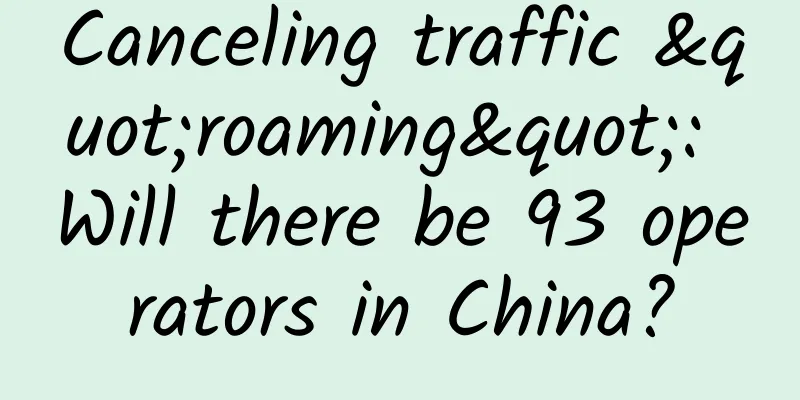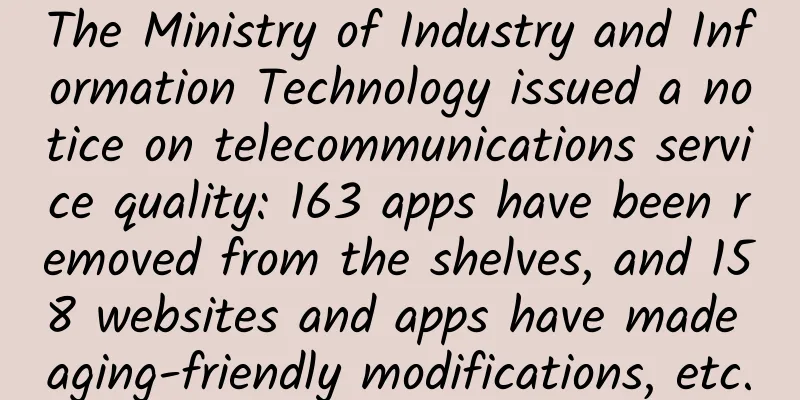Canceling traffic "roaming": Will there be 93 operators in China?

|
At the first session of the 13th National People's Congress on March 5, Premier Li Keqiang delivered a government work report. For the telecommunications industry, the report recommended increasing speed and reducing fees, canceling data roaming fees, and reducing mobile network data charges by at least 30% within the year. In response, the three major operators have stated that they will resolutely implement the national policy requirements of "speeding up and reducing fees", increase the speed and fee reduction efforts, cancel the data roaming fee, and reduce the mobile network data charges by at least 30% within the year. "Speeding up and reducing fees" has also become the focus of the three major operators' work this year.
The conditions for further speed increase and fee reduction are in place In fact, increasing speed and reducing fees are no longer new things for operators and consumers. Since 2015, the three major operators have repeatedly increased Internet speeds and lowered communication charges. It is understood that in terms of speed increase, the number of fiber-optic broadband users and mobile broadband users in my country ranked first in the world last year. Currently, the number of users using 50 Mbps broadband and above accounts for more than 70% of the total number of household broadband users, and the number of 4G users has approached 1 billion by the end of 2017. In terms of reducing fees, users' fees are constantly decreasing through measures such as increasing speed without raising prices, not clearing traffic, and canceling long-distance roaming charges for voice calls. Over the past three years, the unit price for broadband users has dropped by 90%, and the unit price for mobile communication users has dropped by 83.5%. In particular, in 2017, unlimited packages and Internet cards significantly reduced consumers' communication charges. For example, China Unicom, which launched low-priced packages such as the Ice Cream Package and Tencent King Card, gave a total profit of 3.83 billion yuan in 2017, including 960 million yuan for mobile communications and 2.87 billion yuan for broadband. The unit bandwidth fee fell by 65% year-on-year. Cancellation of roaming charges may lead to chaos among more than 90 branches The three operators have always adopted the group + branch model, and each branch has its own market scope. However, with the end of roaming fees this year, the market competition boundary established by roaming fees has been completely broken. Whichever local branch offers the cheapest tariff can attract users across the country to apply. Especially in the current market, the low-priced unlimited local data packages launched by local operators will undoubtedly significantly reduce the national data charges once the roaming restrictions are lifted. This is particularly attractive to users in high-cost areas such as Beijing, Shanghai and Guangzhou. It is not difficult to imagine that if the operators adopt effective measures to unify the national data tariff standards before canceling the data roaming charges, the competition situation of the three operators originally isolated in each place will turn into a melee among more than 90 branches of the three operators. Not only will the competition between China Mobile, China Unicom and China Telecom become more intense, but local operators in high-cost areas such as Beijing, Shanghai and Guangzhou will also face attacks from their own brothers in low-cost areas. The branch model may become a thing of the past Once the national tariff packages are unified and the services are consistent, the branch model that has been operating in the operator market for many years will become meaningless. In the early days of mobile network development, operators' provincial and municipal companies operated independently, and the network construction, maintenance, billing, and customer service systems of mobile services were all independently responsible by the provincial and municipal companies. However, after the large-scale construction of 3G and 4G, especially the operation of 4G, operators have an increasingly strong desire to unify and centralize management across the country and break down barriers between provinces. At the same time, with the cancellation of roaming charges, each branch will face competition from operators across the country. The three major operators certainly do not want to see internal friction caused by such a situation, and the branch model will inevitably change. National unified maintenance, billing, and customer service may become the operating model of operators in the future. This will also bring obvious benefits. All national business platforms will be connected, and operators can create a unified national backend and carry out centralized management. The tariffs can also be truly unified, simple and clear, and users will no longer have the embarrassment of difficult choices. |
<<: The future of the telecommunications industry – opportunities and challenges
>>: How long can Huawei's enterprise business maintain such high growth in performance?
Recommend
HostYun: Los Angeles/Japan/Korea/Hong Kong VPS monthly payment starts from 15 yuan, KVM architecture, CN2 GIA and other lines
HostYun is a Chinese VPS hosting company founded ...
Lightwave OFC 2025 Outlook: Quantum will take center stage
Beijing time, February 19 (Shui Yi) As the world&...
Four indicators to help you choose the best multi-service data center provider
A new report from MarketsandMarkets predicts that...
Let's talk about virtual mobile network security
1. Introduction With the rise of 5G technology, v...
Why do we need a websocket protocol when there is an HTTP protocol?
Usually when we open a web page, such as a shoppi...
Li-Fi is 100 times faster than Wi-Fi. Is it reliable?
Wi-Fi has had a huge impact on mobile computing, ...
Detailed explanation of five Docker container network modes
Docker networking sets up how containers communic...
The number of terminal connections has exceeded 200 million, and 5G commercial use still needs to break through
Recently, data released by the Ministry of Indust...
ExtraVM: 1Gbps unlimited traffic VPS starting from $5 per month, in data centers such as Los Angeles/Dallas/Netherlands/Japan/Singapore
Founded in 2014, ExtraVM is a foreign hosting com...
TmhHost: Japan/Hong Kong/US CN2 GIA/High Defense Cloud Server 20% off for three months starting at 79.2 yuan
TmhHost is a Chinese hosting company founded in 2...
The three major operators are about to adjust, and the low standard of 5G tariffs is coming, and both new and old users have opportunities
2019 can be said to be the first year of 5G base ...
How should spaces and plus signs in URLs be encoded?
[[427910]] This article is reprinted from the WeC...
Industry Observation: 6G will mainly become an industrial IoT network
Cellular positioning technology for key IoT indus...
XenSpec: 1GB unlimited traffic VPS starting at $2.04/month, Los Angeles/Chicago data centers
I just shared the news about XenSpec a few days a...
Teach you a few tips to improve the security of wireless routers - no longer have to worry about freeloading
With the popularity of wireless networks, wireles...









